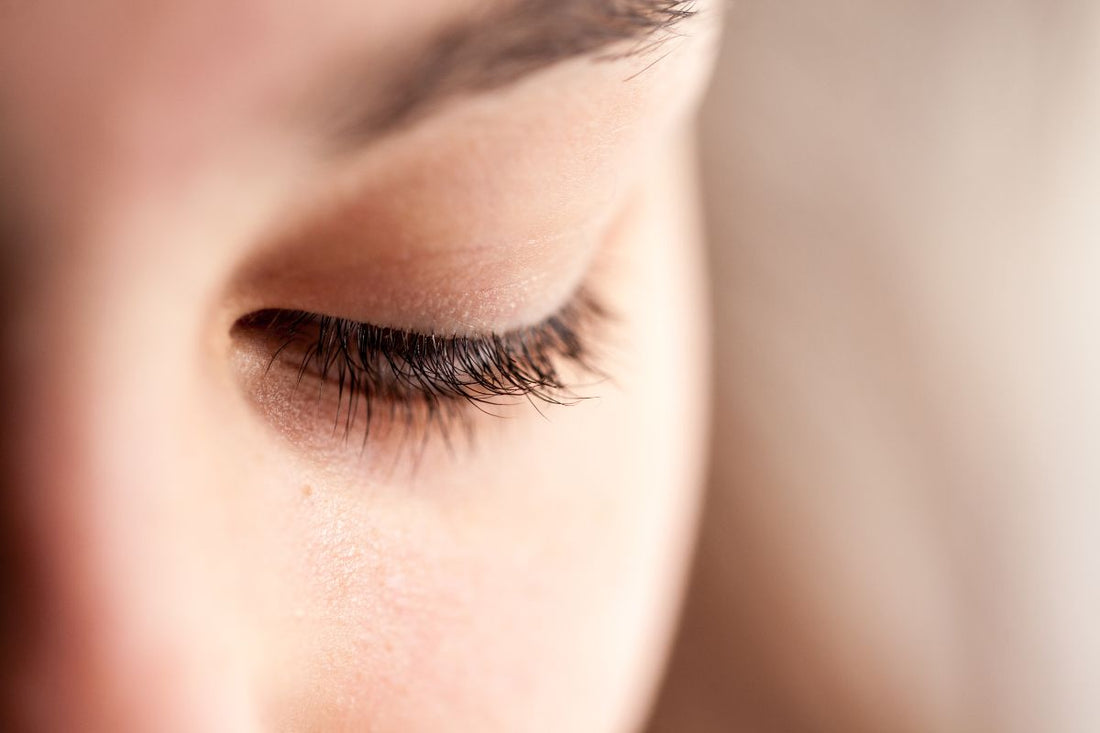Patients with uneven eyelids are often seen in the cosmetic surgery office in an attempt to find a remedy for their condition or have surgery to correct it.
Very few individuals are aware of the causes and the remedies. Individuals with double eyelids and individuals with uneven eyelids often seek consultation with a board-certified cosmetic surgeon in an effort to choose one of several available options for correction.
Causes of Uneven Eyelids
Why are my eyes uneven?
It's a common problem that affects many people, but it's not always easy to figure out why one eye is bigger than the other, or why one eyelid is lower than the other.
There are a number of reasons why this happens and—more importantly—there are ways to fix it. Here are the common causes of uneven eyelids:
Genetics.
Genetics is one of the causes of uneven eyelids. You may have inherited it from your parents, or you may have developed it as you got older.
Aging.
Aging is one of the causes of uneven eyelids. As we age, our skin becomes thinner, drier, and less elastic.

This can lead to an increase in fine lines and wrinkles on the upper eyelid which can make it appear as though the eyelids are uneven.
Lifestyle factors.
The biggest issue is that many people are working long hours and don't have time to sleep properly. This can cause you to get less sleep than your body needs, which can result in a number of issues including uneven eyelids.
Other lifestyle factors that can cause uneven eyelids to include smoking and drinking too much alcohol. This is because these things contribute to dehydration, which can cause the skin around your eyes to become thinner and more prone to wrinkling.
Bell’s palsy.
Bell’s palsy is a form of facial paralysis that can be caused by a viral infection, injury to the neck or head, or by other conditions such as diabetes and Lyme disease.
The exact cause of Bell's palsy is unknown, but it is believed to occur when there is an inflammation of the facial nerve that controls movement on one side of your face. The inflammation damages the nerve and causes temporary weakness on one side of your face.
Symptoms include drooping eyelids or eyebrows and loss or partial loss of sight and hearing on the affected side. In some cases, Bell's palsy may also cause pain and stiffness in your face, neck and shoulders. If you experience any of these symptoms, contact your doctor immediately.
Trauma.
When you hurt yourself, your body reacts by attempting to repair itself. In the case of an injury to your eye, the body will attempt to repair itself by bringing new tissue into the damaged area.

This new tissue can cause the skin on your eyelid to become uneven and saggy. The good news is that this process is usually temporary, but it can take some time to go away completely.
Sinus conditions.
Sinus conditions are one of the most common causes of uneven eyelids. This is because the sinuses are located just above your eyes, so any infection or inflammation can cause fluid to build up and push the skin around your eyes outward, causing them to look uneven.
If you have sinus problems and notice that your eyelids are beginning to look uneven, it's important to get treatment as soon as possible. If left untreated, the swelling will continue to grow until it becomes severe enough to require surgery.
Graves’ disease.
Graves’ disease is a condition in which the patient’s immune system makes autoantibodies that attack the thyroid gland that leads to overproduction of hormone.
The result is often an overactive thyroid and an underactive pituitary gland. One of the symptoms of Graves’ disease is that it causes an uneven distribution of fat throughout your body, including on your face. When this happens, it can cause one eyelid to appear lower than the other.
This problem can be corrected with surgery, but if the cause of your uneven eyelids is Graves’ disease, you should speak with a doctor about whether or not you need treatment for that condition as well.
Stroke.
Uneven eyelids can be caused by stroke, which is often referred to as a brain attack or brain hemorrhage.
Stroke affects blood flow in the brain and can lead to a variety of symptoms including impaired motor skills, memory loss, speech difficulties and vision problems. In addition to these symptoms, stroke can also cause uneven eyelids.
Treatment & Home Remedies of Uneven Eyelids
Uneven eyelids can be caused by genetics, aging, or even allergies. They can make you look tired and even older than you are.
But there are many home remedies and natural treatments that can help to improve your uneven eyelids.

Home Remedies
- Apply coconut oil to the lids every night before bed to help moisturize them and reduce puffiness in the morning.
- Drink plenty of water each day to keep your body hydrated and flush out toxins that may cause swelling and puffiness around the eyes.
- Eat foods rich in vitamin C like oranges and strawberries to help maintain healthy skin around your eyes.
Natural Treatments
Use a cold compress on your eyes for 10 minutes at a time to reduce swelling and puffiness around them.
You can also soak cotton pads in witch hazel or rose water, then apply them over your eyes for 10 minutes at a time until the swelling goes down naturally without any medication needed.
Can You Fix Eyelid Asymmetry?
Is there an answer on how to fix uneven eyes? Uneven eyelids can be a cosmetic concern for some people.
The condition may not be serious and may not require treatment. However, it can cause your face to look asymmetrical, which could make you feel uncomfortable about your appearance.
If you have uneven eyelids, there are two common treatment options available:
Eyelid surgery is typically performed under local anesthesia and takes about 30 minutes to complete.

Surgery may involve removing excess skin from one of your upper or lower eyelids or tightening muscle tissue around them. You'll need to remain still while the surgeon works on your eye so they don't accidentally injure it during surgery.
Eyelid tape:
An alternative option for treating uneven eyelids is applying medical tape over your lids before going to bed each night; this will help smooth out wrinkles and creases on your lids so they appear more even when you wake up in the morning.
Myths About the Treatment of Uneven Eyelids
There are a lot of myths about uneven eyelids, and some of them are downright dangerous! Let's take a look at some of the most common ones:
Myth: You're going to go blind if you don't get your eyes fixed.
Truth: This myth is just as ridiculous as it sounds. It's not true that getting an eye exam means you'll go blind. In fact, it's quite the opposite—getting an eye exam can actually help prevent blindness later in life.
Myth: Wearing glasses will fix the problem.
Truth: While glasses may be used to correct vision problems, they can't fix an underlying issue with your eyelids or eyesight.
As far as we know, wearing glasses won't stop your eyelids from becoming uneven over time. They might make it easier for you to see with more accuracy when they're corrected properly though!
Myth: Surgery is the only way to fix uneven eyelids.
Truth: No, there are multiple surgical options available for correcting uneven eyelids—but there are also other non-surgical methods out there too! For instance, there are creams and medications that can help keep your lids from becoming more uneven over time.
How Do You Fix Uneven Eyelids?
If you are experiencing uneven eyelids, there are several ways that you can correct them at home.
1. Home Remedies
- Apply coconut oil to the lids every night before bed
- Drink plenty of water each day
- Eat foods rich in vitamin C

2. Natural Treatments
- Use a cold compress on your eyes for 10 minutes at a time to reduce swelling and puffiness around them
3. Eyelid tape
4. Eyelid surgery
Why Do I Have Uneven Eyelids?
Uneven eyelids are a common problem and can result from many different causes. These include:
- an underlying condition, like Bell's palsy or thyroid disease
- a side effect of certain medications, like steroids
- a break in the tendon that controls the movement of your eyelid
- a genetic condition, like Down syndrome
- a physical injury to your eye or eyelids
How Can I Even My Eyelids Naturally?
There are ways to even out your lids naturally. These include:
- Use an eye cream with hyaluronic acid (a natural component of skin tissue) and vitamin E to moisturize the area around your eyes.
- Massage your closed eyes with essential oils like lavender or frankincense oil for 10 minutes each day for three weeks straight. This can help reduce puffiness and improve circulation in the skin around your eyes.
- Drink lots of water every day so that your body stays hydrated and healthy from within.
Why Does One of My Eyelids Go Lower Than the Other?
It's called ptosis, and it can occur for a number of reasons.
The condition is most common in people who are middle-aged or older, but it can happen to anyone at any age.
If you're under the age of 40 and have ptosis, it could be due to something as simple as a muscle spasm or stress. In this case, it should correct itself over time.

If your ptosis is due to old age or another medical issue, there are several different remedies that can help. One is called blepharoplasty, which is an eye lift that tightens the excess skin around your eyes (the upper lid) and removes excess fat deposits from above and below your eyelids.
This procedure is done under local anesthesia in an outpatient setting and takes between 30 minutes and two hours depending on how much needs to be done.
Another option is an oculoplastic surgeon who specializes in eyelid surgery. These surgeons specialize in reconstructive procedures for those with conditions such as ptosis or droopy eyelids—they can perform both primary surgeries.
Conclusion
Uneven eyelids are pretty common and don't always say anything about the health of your eyes. In fact, most of the time, eyelid problems can be easily resolved, leaving you with perfectly even lids.
Unfortunately, if you're struggling with severe symptoms such as intense redness or pain, it's worth seeing a doctor to make sure there's no underlying cause that needs attention.
Rest assured that there is usually a simple solution to eyelid problems, but if your problems persist after trying some at-home remedies, see a specialist.

